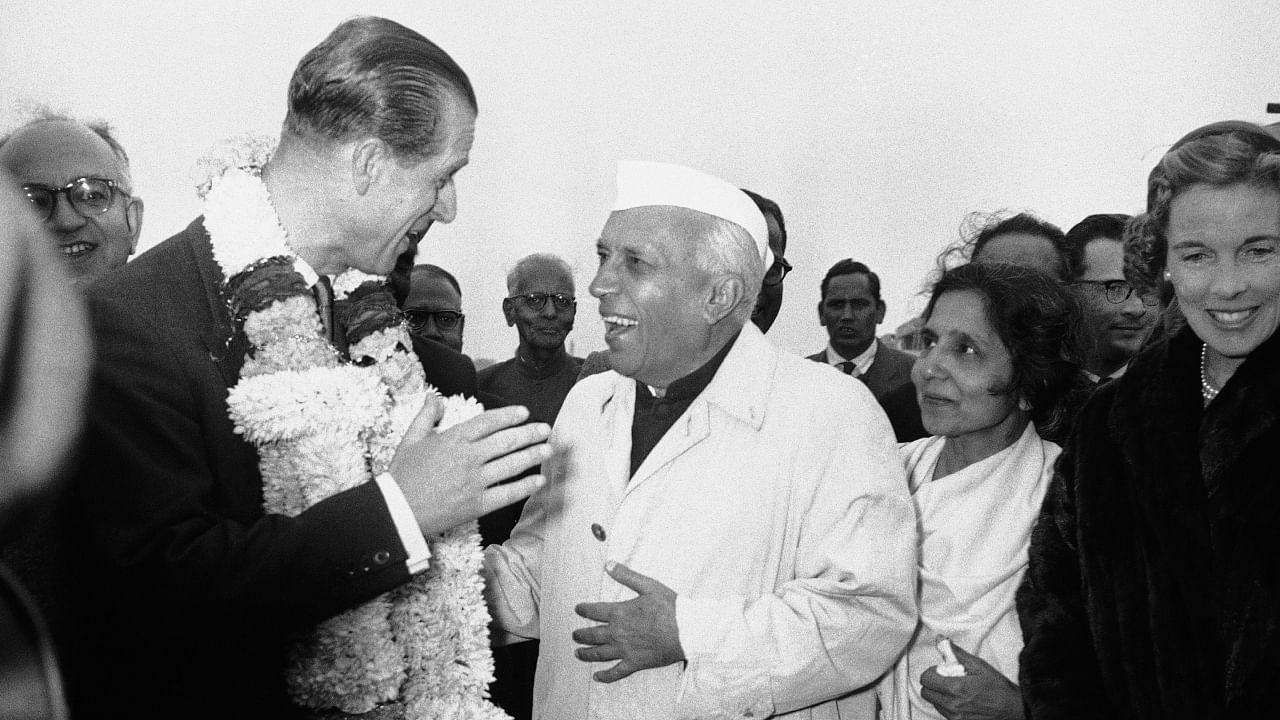
Mr Jawaharlal Thomas had been droning on for nearly 40 minutes. Passionately patriotic, he did not realise that not everyone was as interested in freedom fighters as he was. Mr Thomas was especially devoted to Pandit Jawaharlal Nehru, after whom he was named. He felt there could be no better date than the 14th of November to enlighten his students about the life and times of India’s first prime minister. Shakespeare’s Polonius might have praised brevity as ‘the soul of wit’, but Mr Thomas — who often quoted Hamlet — was known to talk endlessly about the man who gave us Children’s Day.
For their part, the children believed that whatever the origins of that special occasion, the afternoon — when their teachers got into whacky costumes and entertained them with songs and dances — was the best part of the celebrations. Mr Thomas, himself, had a good sense of humour, and was playing a comic role in a skit. He believed, however, that it was his duty as a mentor to ensure that those in his care knew all about the remarkable human being whom he and his family greatly admired.
“Which of Jawaharlal Nehru’s works acquaints us with our country’s glorious past?” he enquired, his eyes fixed on a boy who had not the faintest idea that he had been addressed.
Suresh nudged his neighbour. “You had better answer, Rajan,” he muttered. Engrossed in sketching a bulldog with a human face, Rajan had completely missed the question. It must, he supposed, be related to the famous personality whose birth anniversary they were observing. Mr Thomas would have been holding forth about Panditji, and had probably asked the standard query about that leader’s trademark flower.
“Rose,” said Rajan brightly, as his classmates stifled giggles. “We are discussing books not buttonholes, Rajan,” Mr Thomas pointed out coldly. “One famous classic is Glimpses of World History. I would like you to name another.”
Rajan peered at what Suresh had scribbled. ‘Discovery of Ind...Ind...,’ whatever could the third word be? Got it! Mr Thomas was always praising Jawaharlal Nehru’s role in the freedom struggle. “Discovery of Independence,” declared Rajan, with misplaced confidence. “If Suresh were to move his notebook closer,” suggested Mr Thomas sarcastically, “you would know that I have in mind The Discovery of India. Of course, you are indifferent to that masterpiece, since you are immersed in your own discovery; that of your artistic talent.” Mr Thomas strode forward and pounced on Rajan’s canine creation. “An impressive likeness,” he remarked, “but am I quite so wrinkled? As for my nose, is it...”
“Sir,” Rajan interrupted desperately, “didn’t Chacha Nehru have a fondness for our four-legged friends?” He was guessing wildly, but he had to pave a return to Mr Thomas’s favourite subject of conversation, without being too obvious about it. “I seem to recall...,” he went on, trying hard to remember what he had read in an article. “I seem to recall that Chacha Nehru was greatly attached to his...to his...”
“Dogs, my dear boy, dogs,” put in Mr Thomas, beaming at Rajan. “Yes, they were mainly golden retrievers. Besides, there were other animals at Teen Murti Bhavan, the official residence of Pandit Nehru. They included pandas and tiger cubs, and there was also an assortment of birds, turtles and various small creatures. I am pleased with you, Rajan, Mr Thomas went on. “How clever of you to be aware that our first Prime Minister was responsible for passing the Prevention of Cruelty to Animals Act in 1960!”
Rajan was aware of no such thing, but he breathed a sigh of relief. Panditji’s pets had saved the day — Children’s Day!
(The author is an English teacher and a freelance writer.)